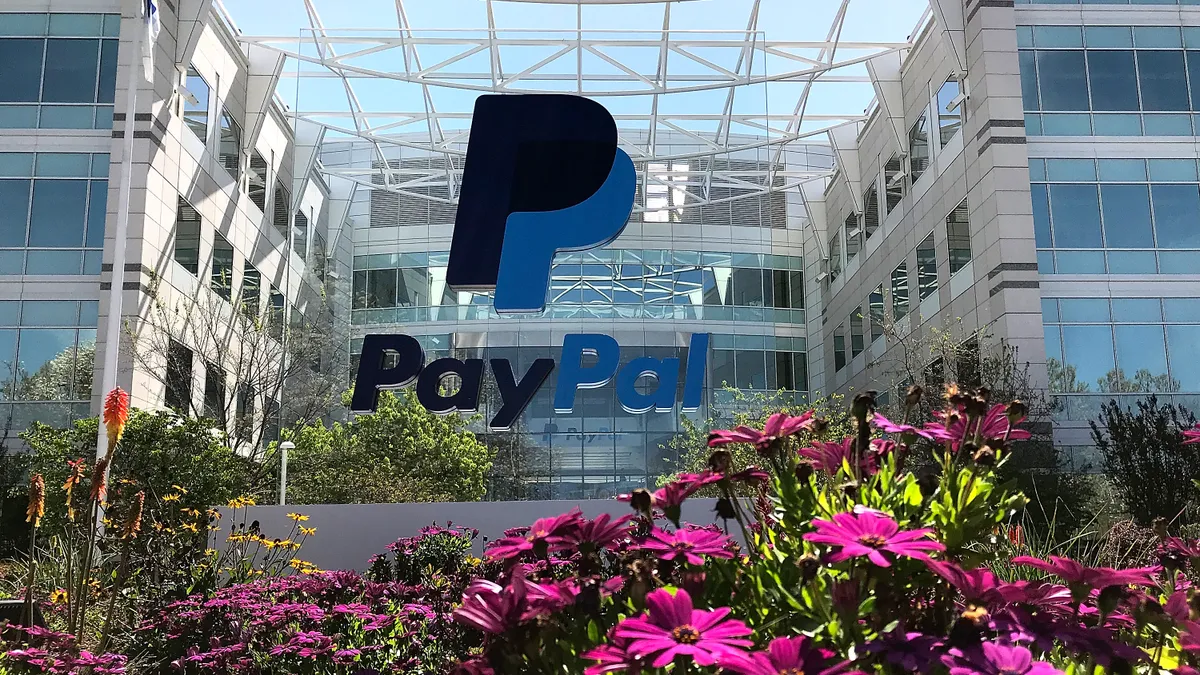PayPal has notified its account users and sellers that it plans to update agreement terms next year in ways that could let it better fend off chargeback fraud.
The digital payments pioneer put its consumer users on notice recently that “the payment a seller receives from a buyer may be invalidated and reversed if the seller fails to respond or provide accurate and complete information to PayPal related to the buyer’s claims or chargebacks for such transaction” in a certain timeframe.
PayPal also notified sellers using its payment services that it’s nixing the “item not received” explanation by buyers for chargeback claims on credit card purchases. Both changes will take effect on Jan. 16, the company said in a notice on its website. Users received a notice this month that linked to the website.
In an emailed statement, a PayPal spokesperson said the company regularly updates policies for users and business partners “to reflect the evolving practices of our industry and ensure we better fit the needs of our customers.” It added that “the peace of mind and security of both buyers and sellers involved in transactions on our platform is a top priority.”
The revisions by the San Jose, California-based PayPal come as payments fraud has surged since 2019, especially since 2020, when the COVID-19 pandemic led to increased online ordering. In particular, chargeback fraud has become more prevalent, meaning there are more instances of crooks buying items and then seeking refunds under false pretenses.
Such fraud is sometimes referred to as “friendly fraud” because perpetrators make a legitimate purchase, using a credit or debit card or other form of payment, and then dispute the purchase in some fashion to pocket a refund, even though they have received the goods or services.
Merchants identified friendly fraud as their top concern in a survey by card giant Visa’s Cybersource in January of last year. And Visa’s chief risk officer told the publication Axios last December that friendly fraud had jumped between 20% and 30% in 2022, depending on the market.
Chargeback fraud has proliferated as merchants have courted customers with friction-free purchase options and liberal return policies.
“Online merchants, and a lot of merchants, have a very agreeable, or kind of a loose policy, or weak policies around returns and refunds,” said Thomas French, a senior fraud consultant at software company SAS Institute. “The crooks just took advantage of that, especially during the pandemic.”
PayPal’s new policy is forcing the merchant to come up with more information to reduce the fraud, French said in an interview Tuesday. “It’s a way for PayPal to tighten up their policies and stop some of the chargeback or refund losses,” he said.
It’s also a way to reduce the costs of handling those situations, particularly with respect to the banks issuing the cards involved in the payment, he explained. “If PayPal can manage to handle that claim or refund internally, within a short period of time, that helps them because if they get a chargeback from the issuing bank that's going to be kind of pricey,” French said.
In the wake of the chargeback fraud increase, French noted that a number of firms have sprung up to offer services and software aimed at thwarting criminal chargeback schemes. Some of the firms include Stripe, Riskified and Chargebacks911.
While Stripe has become an international juggernaut payments company with headquarters in San Francisco and Dublin worth billions of dollars and offering a wide array of payments services, others, such as Chargebacks911, have remained niche players.
In addition to fraudulent chargebacks, “policy abuse” with respect to returns by otherwise good customers is also a problem for merchants, Riskified said in a September report, estimating that one in five refund claims can be classified as an abuse of merchants’ policies.
Chargeback issues have been a blind spot for the payments industry in the past because it was relegated to back-office operations at the end of the transaction, but there is more focus on it now as companies try to reduce the impact of fraud, French said.
“It is now becoming painfully clear that the crooks have identified this as a weak point,” French said, explaining that he’s not surprised that it has taken merchants and payments players’ policies a couple of years to catch up with the new fraud trend. “They’re tightening up.”


















